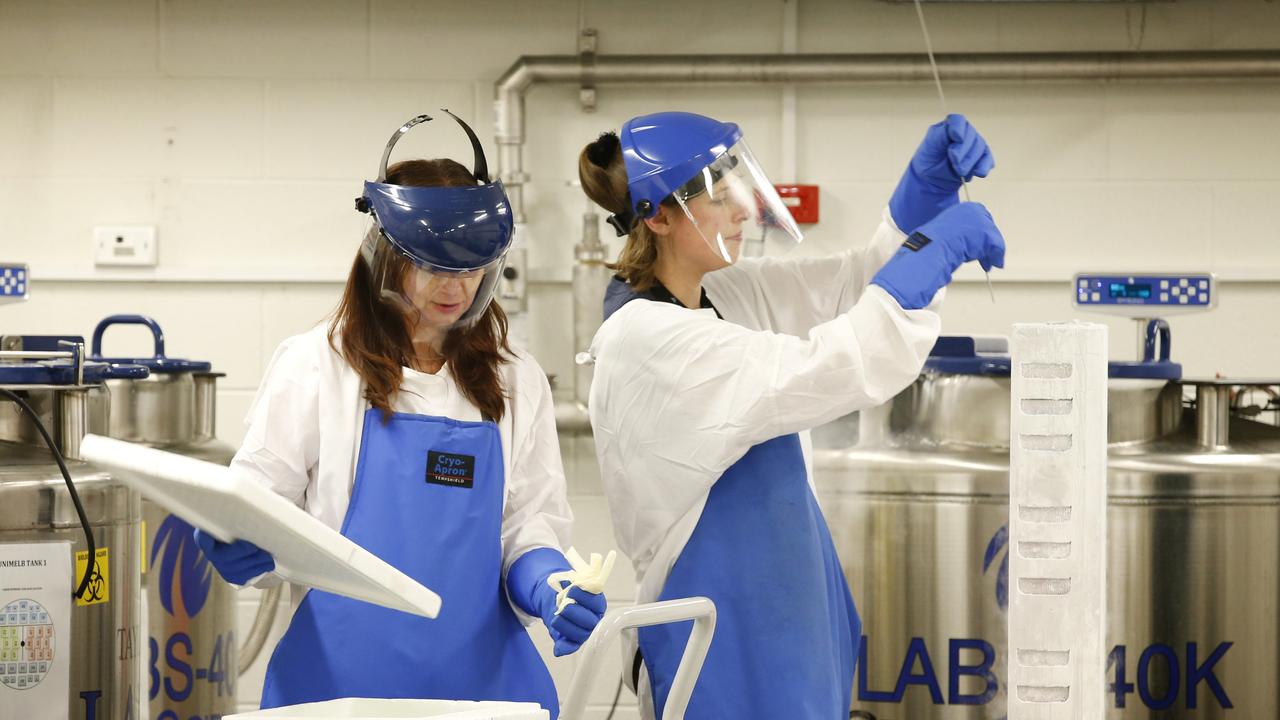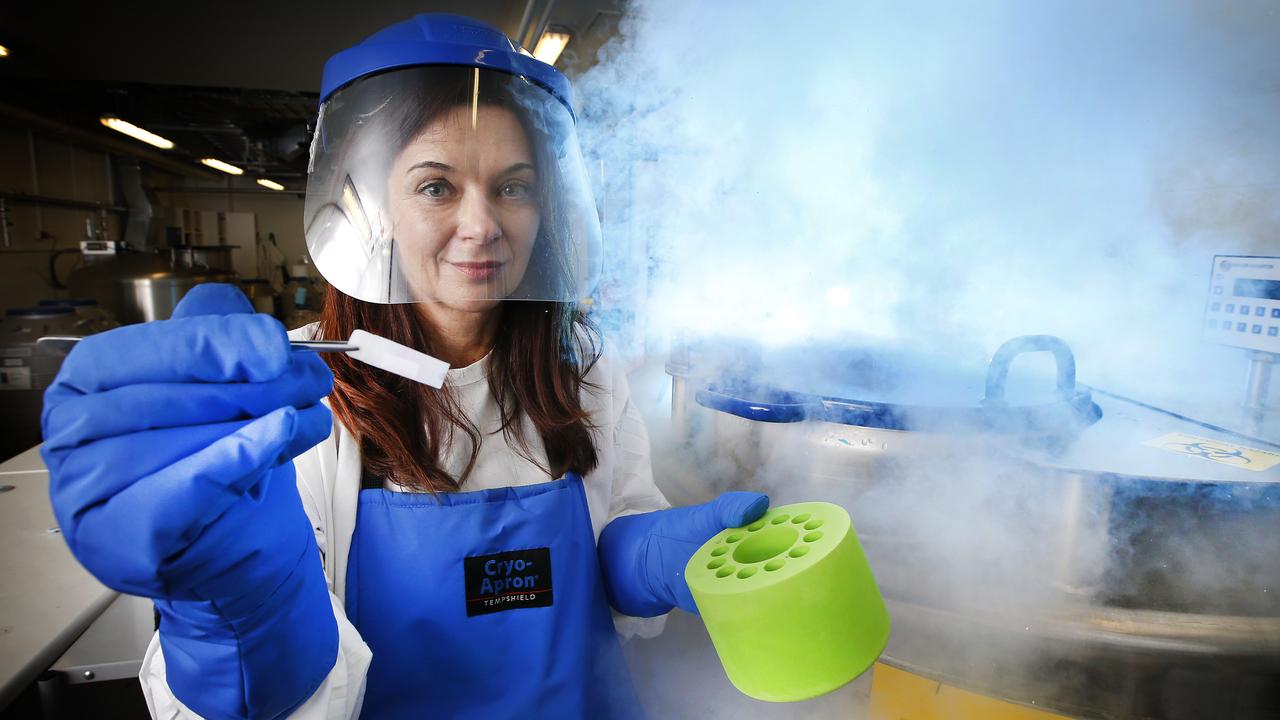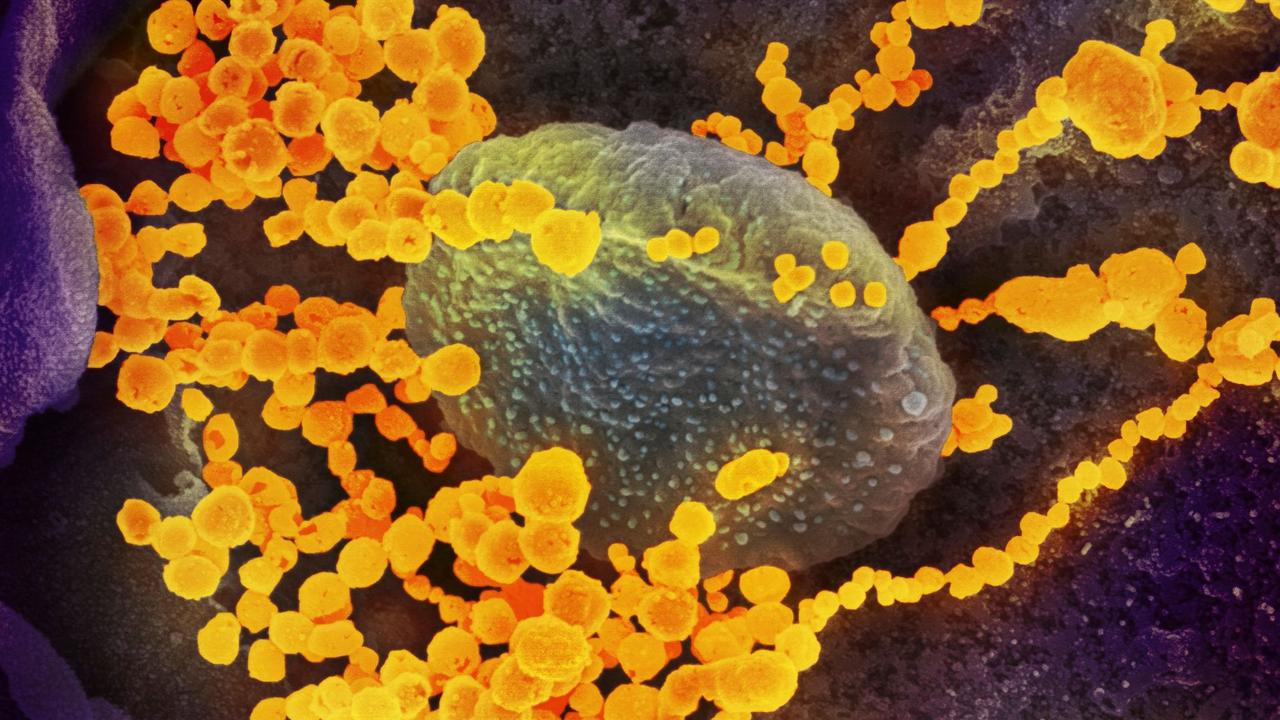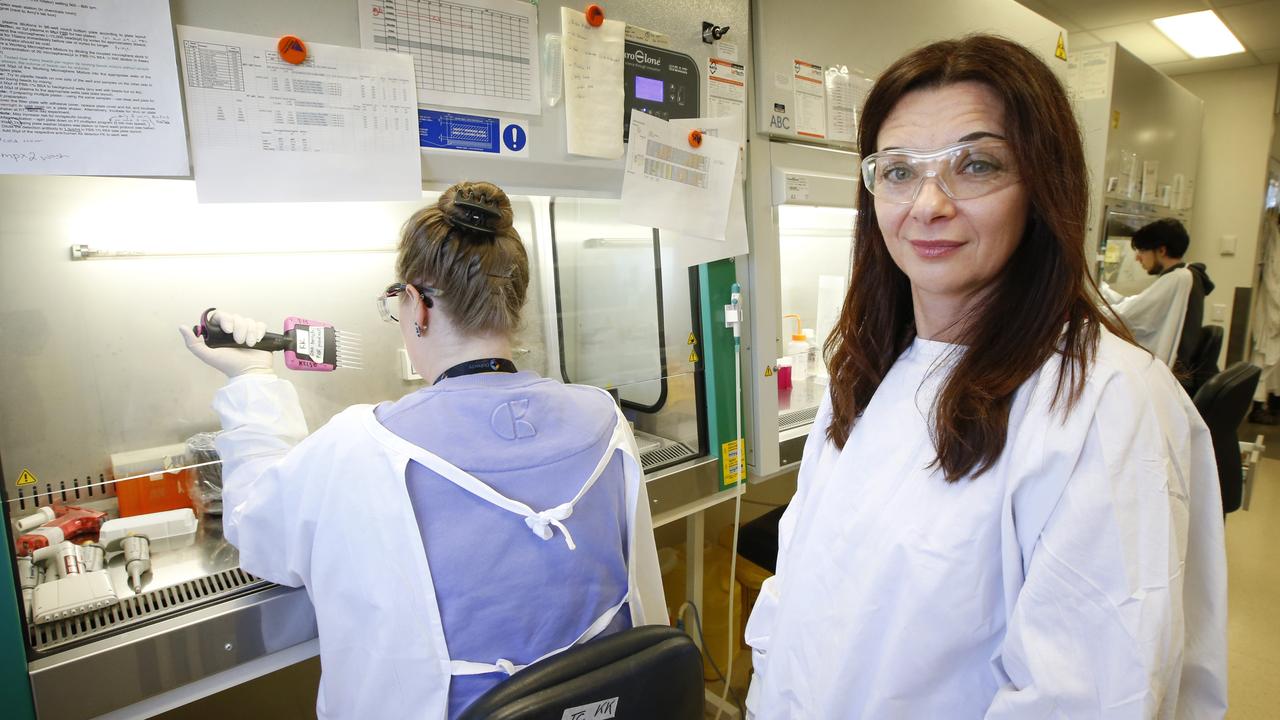Coronavirus Australia: Scientists track how immune system fights virus
Researchers in Victoria studying a woman’s immune system response to coronavirus predicted she would recover in three days - and she did.

Victorian scientists have worked out how the body’s immune system fights back against the coronavirus and were able to accurately predict when a patient would recover.
Researchers at the Peter Doherty Institute for Infection and Immunity in Melbourne took four blood samples from an “otherwise healthy” woman who was one of the first people diagnosed with the respiratory illness in Australia.
There are now more than 630 confirmed cases of coronavirus across the country and as of Thursday morning, six of those patients had died.
RELATED: Follow the latest coronavirus updates

The 47-year-old woman at the centre of the study had travelled from Wuhan in China – the initial epicentre of the outbreak – but had no contact with the Huanan seafood market or any known COVID-19 cases.
She presented to a hospital emergency department in Melbourne experiencing lethargy, a sore throat, dry cough, chest pain and fevers.
Current estimates show more than 80 per cent of people who contract the virus have mild to moderate symptoms.
In their report published in the Nature Medicine monthly journal on Tuesday, the researchers mapped how the woman’s immune system had responded to COVID-19.
“We looked at the whole breadth of the immune response in this patient using the knowledge we have built over many years of looking at immune responses in patients hospitalised with influenza,” research fellow Dr Oanh Nguyen said.
“Three days after the patient was admitted, we saw large populations of several immune cells, which are often a telltale sign of recovery during seasonal influenza infection, so we predicted that the patient would recover in three days, which is what happened.”
Researcher Carolien van de Sandt told the ABC: “It’s the first paper that shows the body can give immunity and fight back and recover.
“Because this is a new virus, we didn’t know how the body would respond.”
RELATED: Aussie researchers ready to trial virus treatment

RELATED: What is social distancing?
University of Melbourne’s Professor Katherine Kedzierska, a laboratory head at the Doherty Institute and a world-leading influenza immunologist, said the dissection of the immune response may be the key to finding an effective coronavirus vaccine.
She said the antibodies released by the human immune system to overcome coronavirus, which causes a respiratory illness, are similar to those used against influenza.
This is despite it never having been exposed to the disease, Prof Kedzierska said.

“We showed that even though COVID-19 is caused by a new virus, in an otherwise healthy person, a robust immune response across different cell types was associated with clinical recovery, similar to what we see in influenza,” she said.
“This is an incredible step forward in understanding what drives recovery of COVID-19. People can use our methods to understand the immune responses in larger COVID-19 cohorts, and also understand what’s lacking in those who have fatal outcomes.”
Prof Kedzierska told the Herald Sun doctors may be able to identify patients who won’t be able to fight off coronavirus, without needing hospitalisation and intervention, by testing their blood for the build-up of coronavirus-fighting antibodies.

The research team used a platform called SETREP-ID (Sentinel Travellers and Research Preparedness for Emerging Infectious Disease).
The platform allows a broad range of biological samples to be taken from returned travellers “in the event of a new and unexpected disease outbreak, which is exactly how COVID-19 started in Australia,” the Doherty Institute said in a statement.
Royal Melbourne Hospital Infectious Diseases physician Dr Irani Thevarajan hopes to roll out SETREP-ID beyond Victoria's borders.
“We hope to now expand our work nationally and internationally to understand why some people die from COVID-19, and build further knowledge to assist in the rapid response of COVID-19 and future emerging viruses,” she said.
RELATED: What are your chances of dying from coronavirus?
Federal Health Minister Greg Hunt described the work as “probably the world’s most advanced mapping of the immune response” to coronavirus in patients with a mild to moderate case.
“It's about fast-tracking a vaccine by identifying which candidates are most likely to be successful,” he told reporters this week.
“But it’s also about fast-tracking potential therapies and treatments for patients who already have coronavirus.
“And that means, particularly for those who have respiratory difficulties, they are looking at the potential for faster access to therapies, faster access to treatments.”



